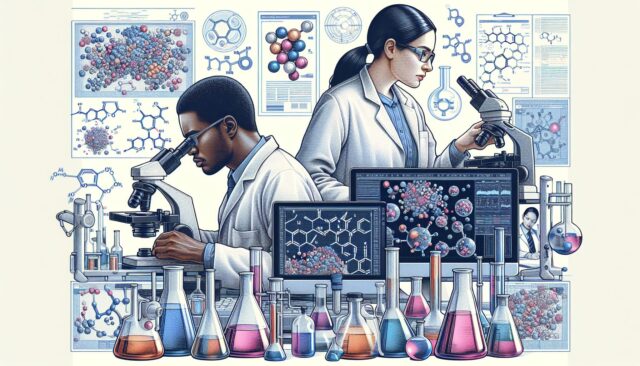Pharmaceutical work is an intricate process that involves a team of dedicated scientists working tirelessly to develop and produce life-saving medications. These scientists play a crucial role in every step of the pharmaceutical journey, from initial research and development to clinical trials and eventual market release.
In the realm of pharmaceuticals, scientists with specialized expertise in fields such as chemistry, biology, pharmacology, and toxicology work together to create new medications that can treat a wide range of illnesses and diseases. These scientists are responsible for conducting research to identify potential drug targets, developing new compounds, testing their efficacy and safety, and ultimately bringing them to market.
One of the key roles of pharmaceutical scientists is drug discovery, which involves identifying potential molecules that can be developed into effective medications. This process typically starts with extensive research to understand the biological pathways involved in a specific disease, followed by computer-aided drug design to create potential drug candidates. Scientists then test these compounds in laboratory settings to determine their effectiveness and safety profile.
Once a potential drug candidate has been identified, pharmaceutical scientists move on to preclinical studies to further evaluate its pharmacokinetics, toxicity, and potential efficacy. These studies are essential for determining whether a drug has the potential to be safe and effective in humans before advancing to clinical trials.
Clinical trials are another critical phase in pharmaceutical work, where scientists design and conduct studies to test the safety and efficacy of a drug in human subjects. These trials are typically conducted in multiple phases, with each phase providing valuable data on the drug’s ability to treat the targeted disease.
Throughout the entire pharmaceutical process, scientists must adhere to stringent regulations and guidelines set forth by regulatory agencies to ensure the safety and efficacy of medications. They must also collaborate with other professionals, such as physicians, pharmacists, and regulatory experts, to navigate the complex landscape of drug development and approval.
In conclusion, pharmaceutical work by scientists is a multifaceted and essential aspect of the healthcare industry. These dedicated professionals play a critical role in every stage of drug development, from initial research to market release, to ensure that patients have access to safe and effective medications. Their expertise and commitment to advancing medical knowledge are invaluable in improving health outcomes and saving lives.
